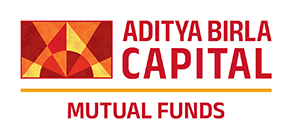How can advisors help you in your journey to financial independence

In our previous article, Steps to achieve financial independence at a desired age, we discussed that financial independence should be one of the most important goals in our life. Disciplined investments in mutual funds have the potential of creating wealth for you over sufficiently long investment horizon, which can help you achieve financial independence. As per AMFI data, there are 1,581 mutual fund schemes in 46 different fund categories across different asset classes (as on 31st July 2024). Which mutual fund schemes or fund categories are suitable for you? How will you navigate through the complex world of investments? There are many questions which a new or even experienced investor may have. Let us begin with how you can start investing in mutual funds.
What channels are available to investors for investing in mutual funds?
There are multiple channels available for mutual fund investors:-
- Mutual Fund Distributors
- Registered Investment Advisors
- Direct Channel
Mutual Fund Distributors
Mutual fund distributors play a very important role in the financial journey of their investors. They can help the investor in understanding their risk profiles and select the right funds based on the financial goals, risk tolerance, and investment horizon of the investors. Distributors try to educate investors on risk / return characteristics different types of mutual funds, such as equity funds, debt funds, hybrid funds, solutions oriented funds, fund of funds, passive funds (index funds, ETFs) etc.
Distributors fulfil transaction services like buy, redemptions, SIP, SWP, STP, switches etc for investors, both for online or offline transactions. They also help investors in completing or updating KYC. They also provide regular customer services like generating account statements, portfolio reporting and resolving investor queries or issues.
An important responsibility of mutual fund distributors is to review the performance of the investor’s portfolio on a regular basis and take corrective actions (if required) if the portfolio performance is not up to expectations based on market performance. Distributors may offer insights into market trends and assist in portfolio modifications in the portfolio, including suggesting suitable mutual fund schemes for new investments or replacing funds in the investor’s portfolio based on the risk appetite and investment needs.
Mutual fund distributors should hand hold investors during difficult times e.g. bear market, volatile markets etc and help them remain on course in the investment journey. They can prevent investors from succumbing to behavioural biases like panic selling in falling markets or irrational exuberance at market peaks, which may harm the investor’s interest in the long term.
Mutual fund distributors usually do not charge any fees from the investors. They get commissions from the asset management companies (AMC) or mutual fund houses. The commission is part of the Total Expense Ratio (TER) charged by Regular Plans i.e. mutual funds sold through distributors.
Source: AMFI Code of conduct for Mutual Fund Intermediaries (link below).
Registered Investment Advisors
Registered Investment Advisors (RIA) can provide valuable service to investors who need help in planning for different financial goals e.g. retirement planning, children’s education planning, children’s wedding, property purchase, estate planning etc. These financial goals can be for short term, medium term or long term horizons. The advisor will help investors in defining and quantifying your goals taking your needs and inflation into account.
The financial advisor will also help the investor understand his / her risk appetite based on their age, income, assets, liabilities, life-stage goals, their attitude towards risk and other factors.
Based on the investor’s financial goals and risk appetite, the advisor will make an investment plan - the investment plan will tell the investor, how much he / she needs to save and invest either through Systematic Investment Plan or in lump sum to achieve each financial goals. When making the investment plan, the advisor should take into account the investor’s income, expenses, debt and other obligations. The advisor will also recommend suitable mutual fund schemes. This process is known as financial planning. An important part of financial planning is asset allocation. Asset allocation refers to diversification of investments across different asset classes to balance risks and returns. Your asset allocation will depend on your risk appetite and financial goals.
Like mutual fund distributors, RIAs should regularly review the investor’s mutual fund portfolio and take necessary actions to ensure that they are on track to meet their financial goals. Advisors should also ensure asset allocation rebalancing from time to time, so that the investor’s portfolio has the optimal asset allocation. As investors progress through different stages of life, their income and needs may change. Therefore your advisor should update the investor’s financial goals and make appropriate modifications to their financial plan.
RIAs charges a fee for their services from their clients and usually get the clients to invest in Direct Plans, whose TER is lower than Regular Plans. If you are investing in a Direct Plan, then the intermediary (if any e.g. RIA, MFD) will not get any commission from the AMC.
Source: SEBI Master Circular for Investment Advisors (link below).
Direct Channel
Over the last 10 years or so, we are seeing increasing adoption of the Do It Yourself (DIY) approach in financial services, especially in investments. If you are a DIY investor, have knowledge of mutual funds and can select suitable funds for your financial goals, you can invest through direct channel. You can invest either through online platforms like the AMC’s website or the Registrar and Transfer Agents’ (RTAs) websites. You need to be KYC compliant to invest in mutual funds. If you are new to mutual funds you can do your e-KYC through the RTA’s platforms. E-KYC is a completely paperless process using OTP based Aadhaar verification. Direct investments in mutual funds can also be done by visiting your nearest AMC branch office.
If you want to opt for direct channels then you must educate yourself on personal finance and mutual funds. Mutual funds offer a wide variety of products of different risk / return profiles; you should be able to select the right product for your specific investment needs. There are many online resources that can be useful for getting fund related information like the AMC websites, online business news portals, mutual fund research portals etc. Knowledge is an important factor in protecting you as an investor. According to the capital market regulator, SEBI, "An informed investor is a protected investor". Aditya Birla Sun Life AMC has extensive learning materials on Investor education which can be accessed through this link - https://mutualfund.adityabirlacapital.com/Investor-Education (an investor education initiative by Aditya Birla Sun Life AMC Ltd).
Conclusion
Mutual funds provide multiple solutions for different investment needs and can play an important role in your journey to financial independence. There are different ways of investing in mutual funds as discussed in this article e.g. mutual fund distributors, registered investment advisors or direct channel i.e. AMC. You should decide how you want to invest based on your own circumstances and needs. Always make sure that your distributor is authorized to sell mutual funds by AMFI and the investment advisor is registered with SEBI. Most important, irrespective of what channel you choose, you should educate yourself about investments and mutual funds because it is your hard earned money. On the occasion of Teachers Day, let us pledge to educate ourselves on investments and become more informed investors.
Links:
AMFI Code of conduct for Mutual Fund Intermediaries
SEBI Master Circular for Investment Advisors
Disclaimer: An Investor education and Awareness initiative of Aditya Birla Sun Life Mutual Fund.
All investors have to go through a one-time KYC (Know Your Customer) process. Investors to invest only with SEBI registered Mutual Funds. For further information on KYC, list of SEBI registered Mutual Funds and redressal of complaints including details about SEBI SCORES portal, visit link https://mutualfund.adityabirlacapital.com/Investor-Education/education/kyc-and-redressal for further details.
Mutual Fund Investments are subject to market risk, read all scheme related documents carefully.
RECOMMENDED READS
Follow Birla Sun Life MF
More About ABSL MF
POST A QUERY





